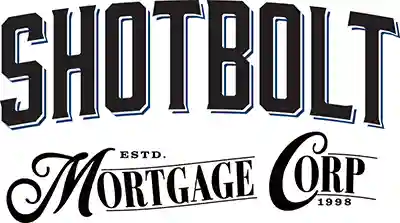Mortgage Blog
Understanding Title Insurance Costs in Omaha: A Beginner’s Guide
January 2, 2025 | Posted by: Jack Shotbolt
Embarking on the journey of purchasing a new home is thrilling, yet the financial commitment can be daunting. It's imperative for prospective homeowners to take preventive steps to ensure their financial safety, even post-purchase. A key method to achieve this is through title insurance.
Title insurance is an essential policy that shields both the buyer and the lending institution from potential losses due to title discrepancies. Given its significance, the minor cost associated with title insurance is a worthy investment.
The pricing of title insurance can differ based on the state, but here we present a general overview and some cost-saving suggestions for those seeking the right title insurance policy for their dream abode.
What's the Typical Cost of Title Insurance?
Generally, the lender's title insurance cost fluctuates by state and is usually around 0.5% to 1% of the property's purchase value. The separate owner's title insurance might set you back by a few hundred dollars.
For instance, if the buying price of your property is $300,000, the projected title insurance expense would likely fall between $1,500 and $3,000.
Coverage Offered by Title Insurance
Even after a property transaction, there remains a chance of title disputes. The coverage of your title insurance largely depends on your chosen title company. Commonly, title insurance policies cover:
- Boundary disputes
- Ownership-related disagreements
- Liens due to unsettled contractor fees, unpaid community association fees, or other debts
- Deceptive or counterfeit documents and property deeds
- Other disputes related to fraud
Why is a Title Examination Mandatory for a Mortgage?
Most mortgage providers mandate a title examination prior to finalizing the escrow process. This involves a title company scrutinizing public records related to the property in question.
Potential issues that title companies typically look out for include:
- Fraudulent claims or forged signatures linked to the property
- Administrative mistakes in official documents
- Outstanding property tax claims
- Claims from unpaid laborers or contractors
- Disagreements among previous owners regarding inheritance
While many homeowners never utilize their title insurance, it's wise to have it as a safety net for unforeseen complications.
For instance, if you acquire a property that was part of an inherited estate, and a previously unknown heir claims ownership, asserting the sale to you was unauthorized. A thorough title search would have identified any existing proof of such an heir. If this was overlooked, your title insurance would aid in managing the associated costs of resolving the matter.
What Charges Constitute Title Insurance Costs?
When you're given a title insurance estimate, the fees from the title company might be detailed individually.
These fees could encompass:
- Title examination fee
- Electronic transfer fee
- Notarization charges
- Additional endorsement charges
- Transfer duties
- Settlement charges
- Protection letter for closing
- Express mailing charges
- Fee for deed drafting
- Official recording fees
- Charges for electronic or email documents
- Fee for document drafting
- Certificates for tax and other purposes
Do Costs for Title Insurance Differ by State?
The cost of title insurance is influenced by both the property's value and its location. The industry is stringently regulated, leading to variations in policies and prices across states.
In states like Utah and Texas, the government determines and standardizes title insurance rates. Consequently, all property buyers in these states pay an identical amount. However, in states like Arkansas and Delaware, where rates aren't fixed, buyers have the flexibility to compare prices and select the most suitable title insurance policy. For detailed insights on pricing regulations, one can refer to the official insurance department website of their respective state.
Strategies to Minimize Title Insurance Expenditure
Depending on regional regulations, title insurance premiums might be consistent or differ among title companies. Nonetheless, there are methods to economize on title insurance:
- Research and Compare: In states with flexible premiums, it's beneficial to compare offerings from different title companies.
- Evaluate Additional Charges: Scrutinize and negotiate additional fees across title companies.
- Bargain with the Seller: Discuss closing costs with the seller. In some scenarios, they might be willing to bear these costs, especially if they're keen on a swift sale.
- Seek Combined Policy Discounts: If you need both a lender's and an owner's policy, inquire about bundling them for potential savings.
- Request a Discounted Rate: If the seller possesses owner's title insurance, consider negotiating for a reduced reissue rate.
Engaging with a seasoned real estate professional can streamline the process, ensuring you collaborate with reputable title companies, allowing you to focus on finding your dream home.
If you are looking for more details on VA Home Loans, FHA Loans and Self Employed Mortgages, contact me today! Working for you to save you time and money on your next Mortgage in Omaha, Lincoln, and all across Nebraska!
See What Our Clients Are Saying
View All Testimonials Goodbye Paperwork.
Goodbye Paperwork.
Hello Quick Approval.
Save Your Time & Apply Online. Competitive Market Rates.
